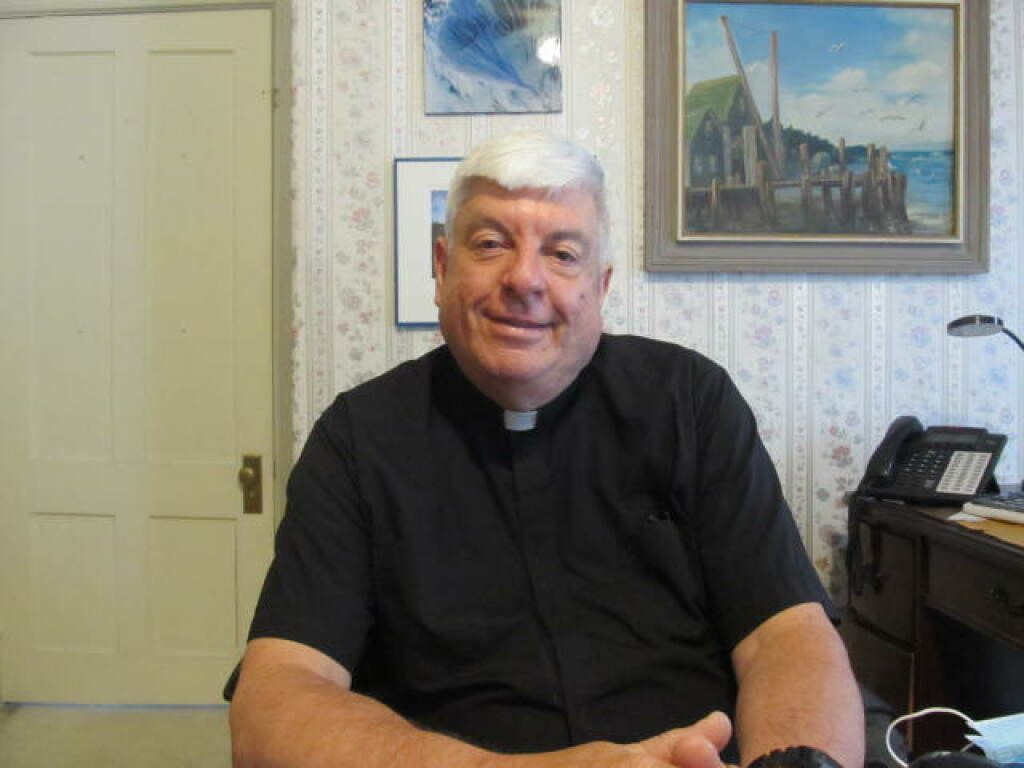 Putting God First
Putting God First
In 1912, Henry Ford visited Ireland, the home of his ancestors. The story goes that, while he was staying in Cork, a couple of trustees of the local hospital paid him a call. “Mr. Ford, we’re building a hospital here in Cork. We think it would be a marvelous memorial to your dear departed father — who left his native land for the fair shores of America — if you would make a gift to support this worthy endeavor!” The great Henry Ford took out his checkbook. He handed over a check for £5,000 on the spot.
The next morning, at breakfast, he opened the local newspaper and saw the banner headline: “American Millionaire Gives Fifty Thousand to Local Hospital.” Ford summoned the two hospital trustees. He waved the newspaper in their faces. “What’s the meaning of this?” he demanded. “Mr. Ford, we apologize. Such a regrettable error! But we can fix it. We’ll get the editor to print a retraction in the very next edition, declaring that the great Henry Ford has given not fifty thousand, but five.” Ford again pulled out his checkbook. He wrote out a check for £45,000, and handed it to them.
I like this story because it is humorous—and it is clever. I don’t know if the newspaper account was a typo, or something deliberate, but, in the end, it was a very clever way to increase Mr. Ford’s contribution.
I think that’s what Jesus is pointing out in the confusing story he tells. At first, it sounds as if he is praising unscrupulous business practices. But that’s not at all the case. He is saying that the guy about to get fired is very clever about taking care of his future. And Jesus wishes that people who follow him would be as serious about their eternal future. And within this new framework, the ground rules are quite different. Jesus teaches that your loyalties cannot be divided. You cannot serve two masters. You cannot serve God and mammon (riches, often describing the debasing effect of material wealth).
Here’s how I look at it. One of the deepest experiences I have had is when I became ill with an infection and almost died two and a half years ago (you may recall that I completely missed Christmas that year). When I was in such obvious need, it was natural to look to God for help, and to realize that I was dependent on God both materially and spiritually. When everything is going my way, by contrast, when I have pretty much all that I need, when I can take care of myself and answer all my own questions, then it becomes easier not to think of myself as being in need.
If I am self-sufficient, then it is easier to think that I don’t need God, or at least to act as if I don’t. This can lead to a self-centered way of living and acting as if there is nothing greater or more important than my wants and needs.
Over and over, Jesus teaches about the importance of putting God at the center of our lives. He is warning in today’s gospel that money and possessions can get in the way of that. It doesn’t mean that we deny the existence of God as such. But if we put ourselves at the center of everything, then it is a lot easier to ignore God and to act as if God doesn’t matter.
Another danger, one that is repeatedly found among Jesus’ critics, is that those who have wealth and power often look down on others and consider them inferior. In the story of the prodigal son, which was our gospel last week, the older son considered his younger brother a loser, pampered by his father, and easily let off the hook.
Jesus also pointed out that having money and possessions can make us callous and indifferent—and even blind—toward the needs of others. Do you remember the story of the rich man and the beggar Lazarus at his gate? The rich man dressed in purple and feasted every day. Poor Lazarus, by contrast, had nothing, had to resort to begging for help, and was even covered with sores that stray dogs would lick. The rich man could have tripped over the poor beggar, yet he did nothing. His wealth had robbed him of compassion, and made him feel that God and God’s teaching didn’t apply to him. He felt no need for God.
As an image to help us to remember all this, I go back to an experience I had during a trip to Israel. There are two major lakes we visited: the Sea of Galilee in the North and the Dead Sea in the South. Both are fed by the same source of water. But there’s a big difference. The Sea of Galilee is alive, teeming with fish. The Dead Sea, by contrast, has so much salt and other deposits in it that nothing can survive. The problem is that the water that goes into the Sea of Galilee flows out again. The Dead Sea, on the other hand, has no outlet. The contaminants just keep building up. In the same way, we can get clogged, be full of ourself, if all we do is take and hoard money and possessions. If we don’t want to end up like the rich man in the gospel, we have to let our blessings flow. We need to notice the beggars at the gate, the poor and vulnerable, the sick and the lonely—and we need to respond. Otherwise, our possessions just might possess us and divine life no longer flows in and through us.
And there’s a song that we’ve sung quite often that carries the message about priorities. It’s called “Seek Ye First”. Do you remember?
Seek ye first the kingdom of God
And his righteousness,
And all these thing shall be added unto you;
Alleluia.
Ask, it and it shall be given unto you,
Seek, and ye shall find,
Knock, and the door shall be opened unto
you;
Alleluia.
You might also like
Father's Homilies




